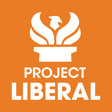
The Future of Online Speech | Shoshana Weissman
On this episode we're joined by Shoshana Weissman. Shoshana is the Digital Director of the R Street Institute. She also works on occupational licensing reform, social media regulatory policy, Section 230 and other issues, and has written for various publications, including The Wall Street Journal and USA Today.
Topics include:
- The Importance of Section 230: why it’s crucial for free speech online.
- The State of Social Media: the changes at X/Twitter since Elon Musk’s takeover.
- AI Regulation and Ethical Concerns: the rapid advancements in AI, the call for development pauses, and the ethical dilemmas surrounding AI-generated content and intellectual property.
- Occupational Licensing Reform: how excessive licensing requirements hinder innovation and entrepreneurship, and discusses liberal alternatives to traditional licensing.
